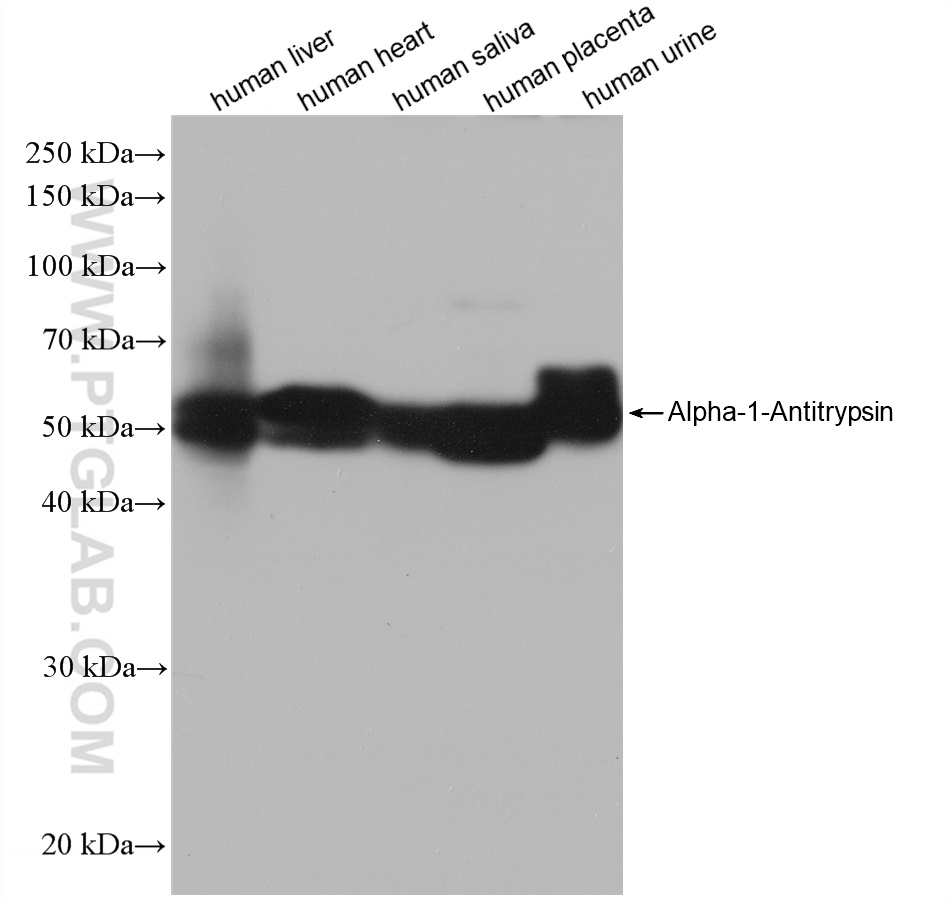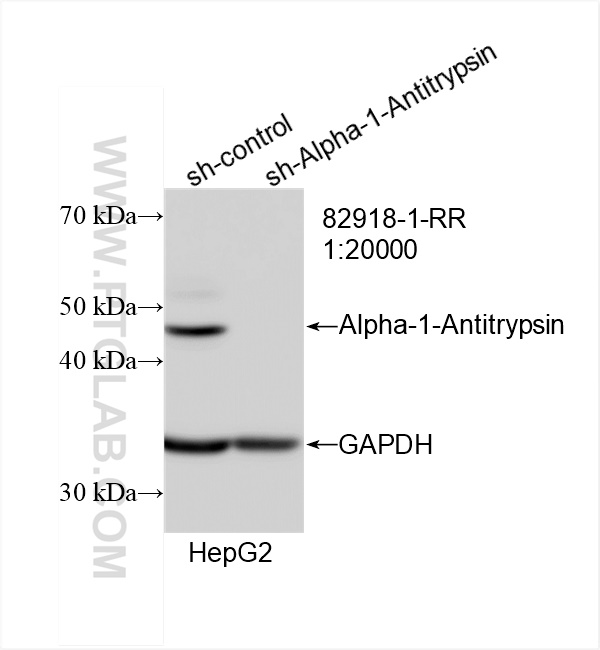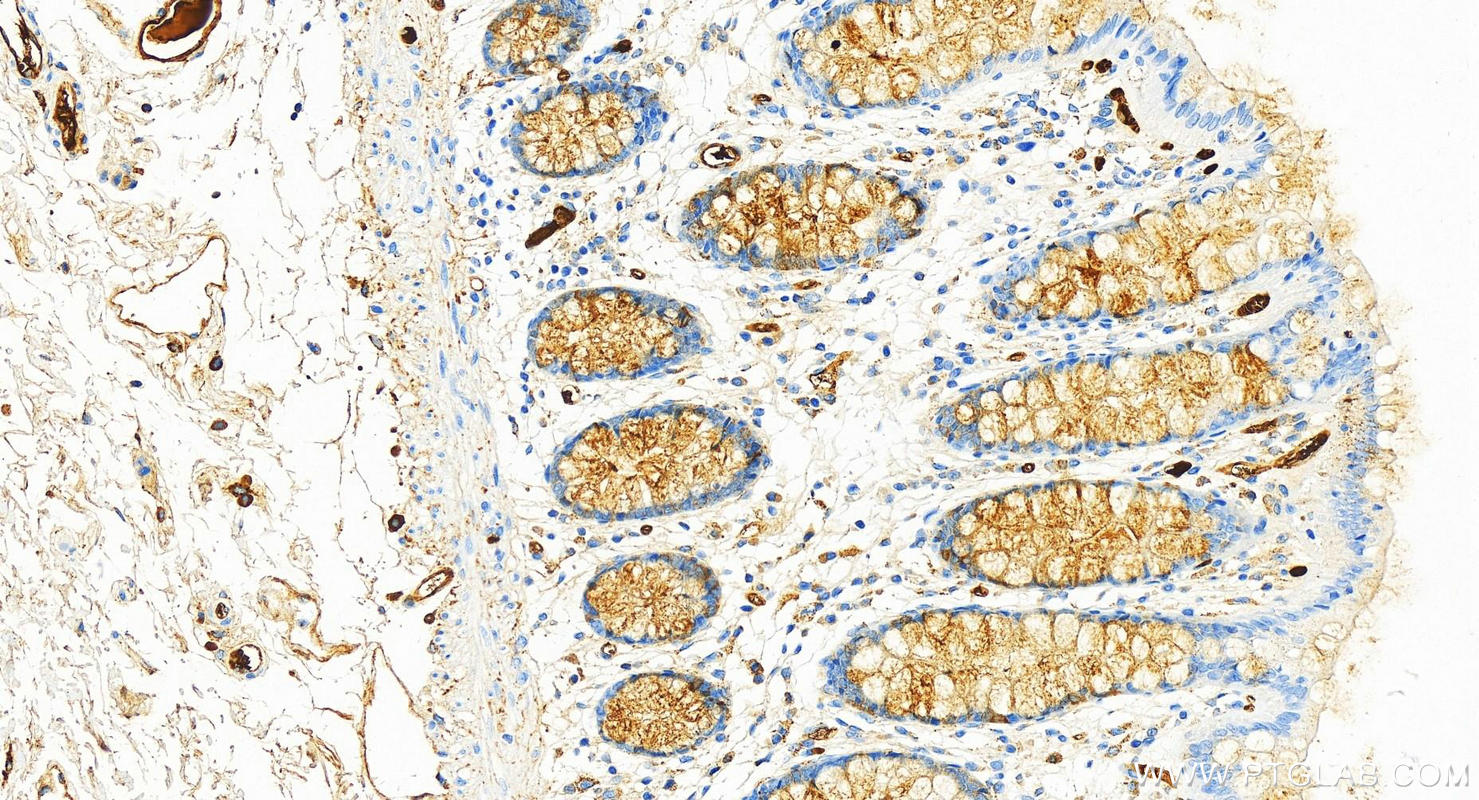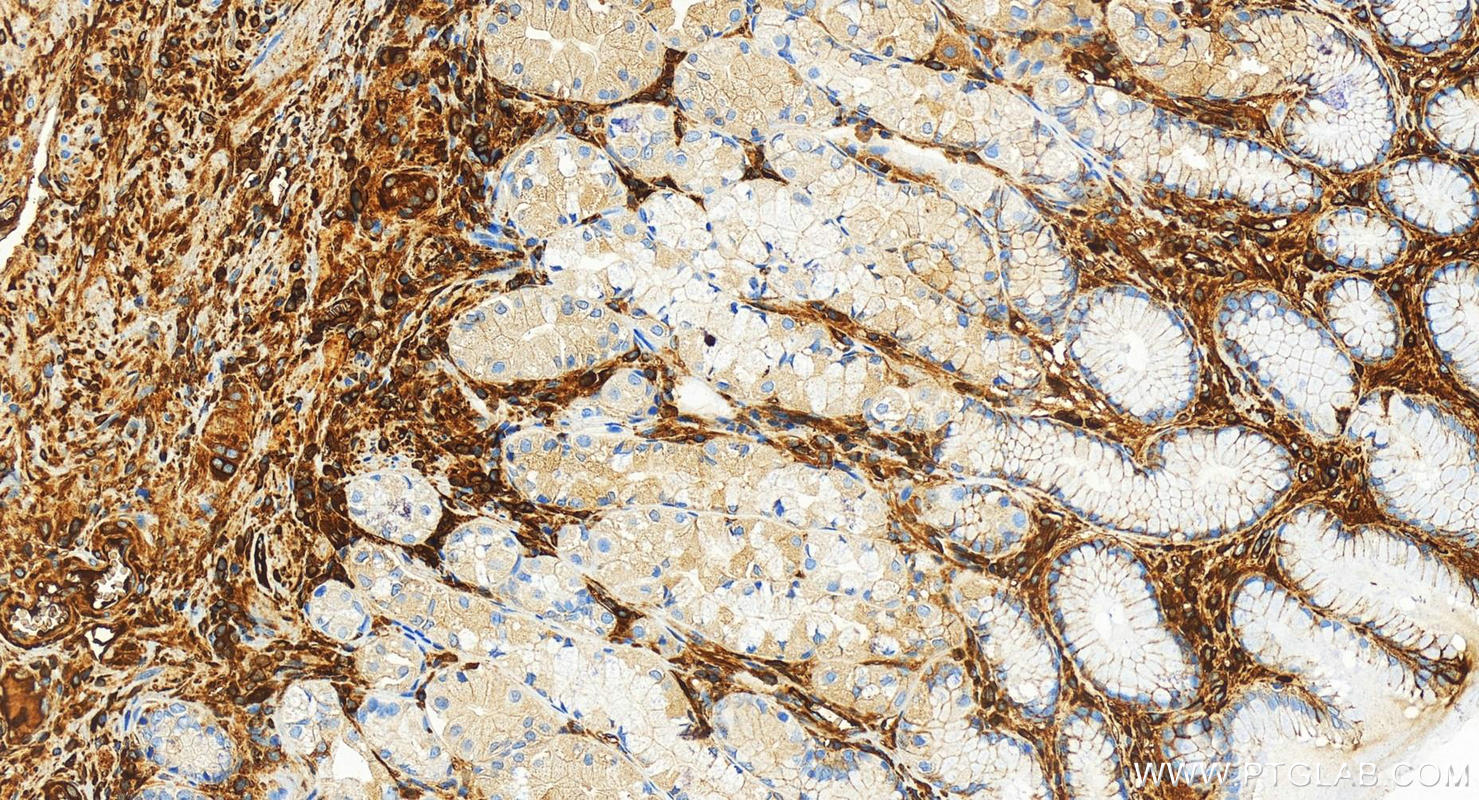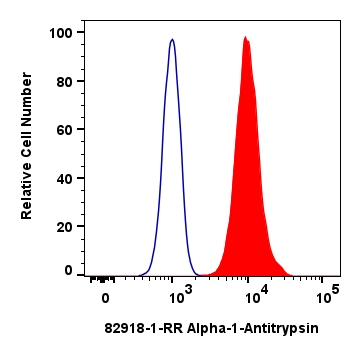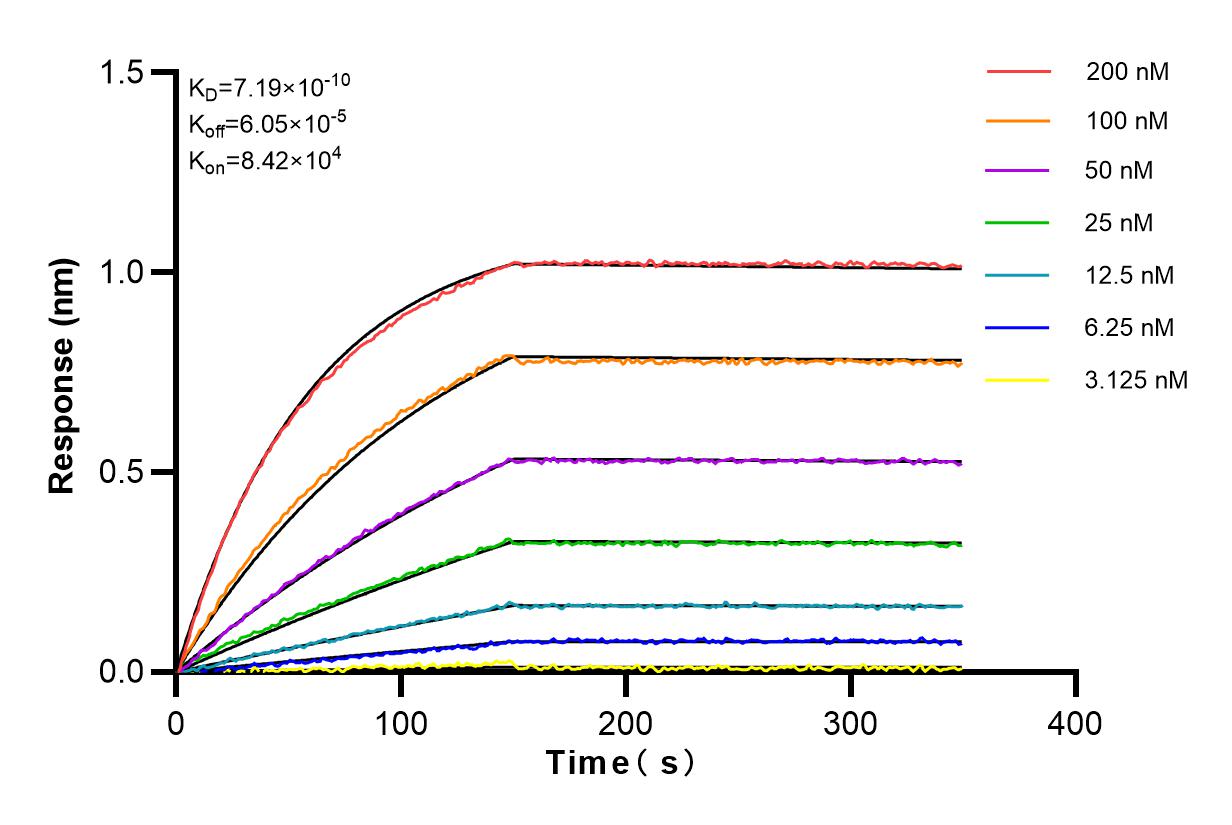验证数据展示
产品信息
82918-1-PBS targets Alpha-1-Antitrypsin in WB, IHC, FC (Intra), Indirect ELISA applications and shows reactivity with human samples.
| 经测试应用 | WB, IHC, FC (Intra), Indirect ELISA Application Description |
| 经测试反应性 | human |
| 免疫原 | Alpha-1-Antitrypsin fusion protein Ag9369 种属同源性预测 |
| 宿主/亚型 | Rabbit / IgG |
| 抗体类别 | Recombinant |
| 产品类型 | Antibody |
| 全称 | serpin peptidase inhibitor, clade A (alpha-1 antiproteinase, antitrypsin), member 1 |
| 别名 | a1-antitrypsin, Serpin A1, SERPINA1, AAT, A1AT |
| 计算分子量 | 418 aa, 47 kDa |
| 观测分子量 | 47 kDa |
| GenBank蛋白编号 | BC015642 |
| 基因名称 | Alpha 1-Antitrypsin |
| Gene ID (NCBI) | 5265 |
| 偶联类型 | Unconjugated |
| 形式 | Liquid |
| 纯化方式 | Protein A purification |
| UNIPROT ID | P01009 |
| 储存缓冲液 | PBS only , pH 7.3 |
| 储存条件 | Store at -80°C. The product is shipped with ice packs. Upon receipt, store it immediately at -80°C |
背景介绍
SERPINA1 is the gene for a protein called alpha-1-antitrypsin (AAT), which is a serine protease inhibitor whose targets include elastase, plasmin, thrombin, trypsin, chymotrypsin, and plasminogen activator. AAT is a glycoprotein synthesized primarily by hepatocytes, with smaller amountssynthesized by intestinal epithelial cells, neutrophils, pulmonary alveolar cells and macrophages. AAT is the most abundant, endogenous serine protease inhibitor in blood circulation and it has been implicated in regulating vital fluid phase biological events such as blood coagulation, fibrinolysis, complement activation, apoptosis, reproduction, tumor progression and inflammatory response. The primary function of AAT is thought to be the inactivation of neutrophil elastase and other endogenous serine proteases. Defects in SERPINA1 can cause emphysema or liver disease.
